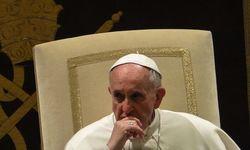One of the conceits of our age is the idea that reason and science have banished superstition and brought a new era of light to human affairs. Faith, sin, heaven, hell, God and grace—these are throwback ideas to a dark age of supernatural mumbo jumbo and witch burnings, doomed to the dustbin of history. In effect, this is the atheist version of a creation myth. It’s a sunny theory. And for people who imagine themselves as materialists, it can be very comforting.
But it’s false. As scholars like Christian Smith and many others have shown, there’s really no such thing as an “unbeliever.” We all put our faith in something. In fact, we all believe in things we can’t see or prove every day, including the premises we use to organize our understanding of reality. Science operates off first principles—in other words, assumptions about the nature of reality—that can never be proven by science itself.
The cultural power of science comes from its ability to explain many of the observable workings of reality, and also from the technology it creates, which can be very useful in humanity’s service. The trouble is that scientists are also directly or indirectly responsible for Sarin gas, Hiroshima and Nagasaki, the technology that murdered six million Jews and the “morning after” abortion pill. Both of the great murder ideologies of the last century—Marxism-Leninism and National Socialism—based their claims to legitimacy on science. More human beings were gassed, starved, aborted, burned, or shot in the name of genetic and racial hygiene, or the laws of history, or scientific materialism in the twentieth century than died in all the previous nineteen centuries of religious conflict and persecution combined.
Some years ago Alasdair MacIntyre wrote that the “new dark ages [are] already upon us”—a darkness brought on not by religion, but by the vanity, moral confusion and failure of the Enlightenment. The key difference between the sixth century and our own, said McIntyre, is that this time “[the] barbarians are not waiting beyond the frontiers; they have already been governing us for quite some time. And it is our lack of consciousness of this [fact] that constitutes part of our predicament.”
MacIntyre’s words may explain a lot about the framework of Catholic thought over the past two hundred years. The Church is a global community. But her heartland for centuries has been Europe. Issues in Europe and the developed world have tended to mold her agenda. Quite apart from the mistakes and sins of her own leaders, the Church in Europe in the years since the Enlightenment has faced constant pressure from revolutionary violence, intellectual contempt, ideological atheism, idolatry of the nation state, two disastrous world wars, and mass genocides. And Catholic attempts to hold on to the Church’s privileges have often made conflicts worse.
Today a new and even more effective atheism—the practical atheism of an advanced but morally empty liberal consumer culture—is pushing the Church to society’s margins. This, on a European continent that owes much of its identity and history to the Christian faith. And we can see some of the same trends now in Canada and the United States.
Obviously I’m using a very broad brush here. There’s no way to squeeze a couple of centuries of Church
life into a few sentences. But thinking like this has helped me imagine what God may hope for us in the leadership of our new universal pastor and bishop of Rome.
...
The words and habits of religion are easy. We can sometimes use them to fool ourselves. We need to drill down below the counterfeit Christianity so many of us prefer into the substance of who we are and what we really treasure. We need to let God transform us from the inside out, and conversion requires humility, patience and love. It requires letting go of the desire to vindicate ourselves at the expense of others. So much of modern life, even in the Church, is laced with a spirit of anger. And anger is an addiction as intense and as toxic as crack.
Pharisees come in all shapes and sizes, left and right. We need to be different. As Pope Francis said in his La Civilta Cattolica interview, the Church needs to be more than “a nest protecting our mediocrity.” We prove or disprove what we claim to believe by the zeal and joy of our lives. What we need to do in the years ahead is what God has always asked us to do: forgive each other; encourage each other; protect the weak; serve the needy; raise the young in virtue; speak with courage; and work for the truth without ceasing—always in a spirit of love.
There's actually much more and it's all worth your time.
Check it out.
Society depends on our getting this.
 life into a few sentences. But thinking like this has helped me imagine what God may hope for us in the leadership of our new universal pastor and bishop of Rome.
life into a few sentences. But thinking like this has helped me imagine what God may hope for us in the leadership of our new universal pastor and bishop of Rome. 